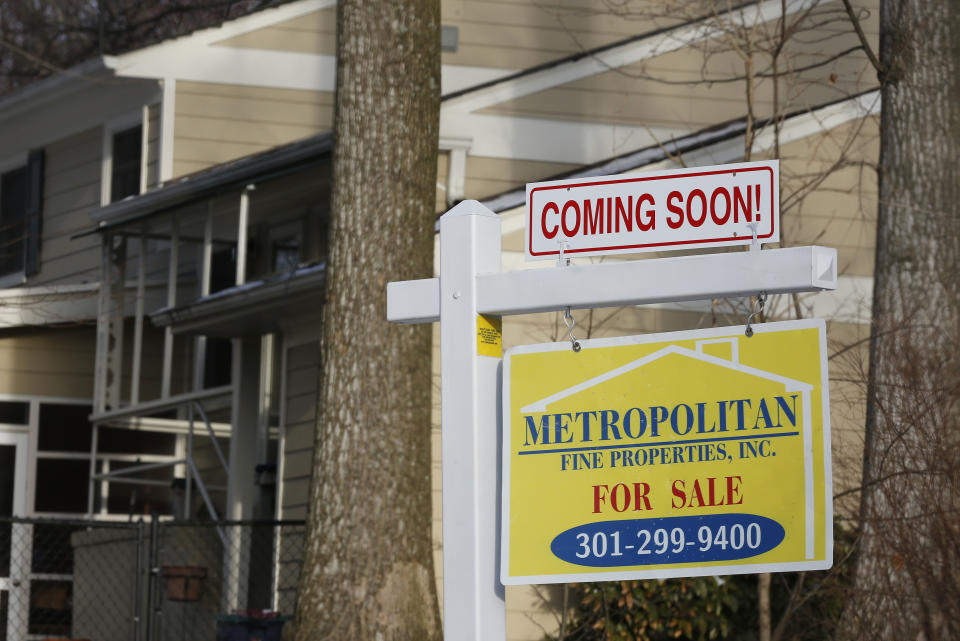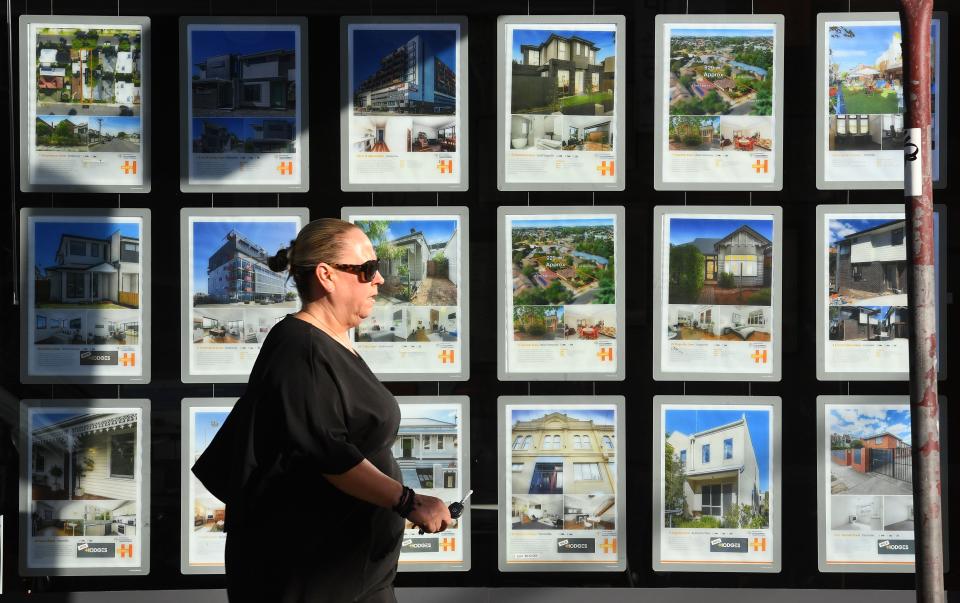What to expect if you plan to buy a home in 2020
If you’re planning to buy a home next year, you’ll have plenty of company.
More millennials are expected to jump in the market in 2020 as mortgage rates remain low. But some problems that plagued homebuyers in 2019 – namely a scarcity of homes for sale – may be alleviated, at least a little, next year.
Here are five key trends experts expect for the upcoming year and how they could affect your home-buying plans.
More competition
The number of new mortgages going to first-time homebuyers is forecast to increase to 8.3 million over the next three years, starting in 2020. That’s a 700,000 jump from the previous three-year period, according to a recent analysis by TransUnion.
“We think there will be growth in spite of limited starter home supply,” said Joe Mellman, senior vice president at TransUnion “We’re actually anticipating interest rates will stay low, unemployment at an all time low, and real wage growth over inflation will be positive.”

But with more buyers comes increased competition. There’s no guarantee every homebuyer will find a house. And when you do, you may be going against other offers.
How can you stand out?
Be prepared before submitting a bid on a house, said Shelly Walters, founder at Shelly Walters Realty Group.
“The whole package needs to be there, [including] the pre-approval letter from the bank and the relocation packet,” she said.
Not having the proper documents ahead of time could delay the bid process, and could possibly derail your chances at winning the home. Add an emotional touch, too, like family letter with photos – if allowed by your state – to help you stand out, she said.
“We have multiple offers that come in, and the seller will pick the one who told them they are a young family with a baby looking for a family home,” Walters said. “A letter will sometimes buy you a house, even if you have a lower price.”
More mid-range homes
Homebuilders will develop more mid-range homes next year, which could help older millennials skip the entry-level home altogether but still remain in their budgets, said George Ratiu, senior economist at real estate listing company, Realtor.com.
“This is good news because this is where we’re having a choke point this year,” he said.

The availability of more mid-ranged homes could also trickle down to help first-time homebuyers, Ratiu said. These new homes could entice some older millennials to sell their smaller homes – priced at $200,000 or less – perfect for those in the market for the first time.
What does that mean for you?
Check with a mortgage professional to see if your budget can buy a mid-ranged home without stretching too much. For those buyers who can’t afford mid-range homes, consider more affordable homes that aren’t necessarily new and may need repairs, Walters said.
“If you’re in a lower range, you can’t have a whole huge list going,” Walter said. “You’ve got to put some sweat equity in the house.”
Prices will keep going up
Housing prices will continue to rise, giving way to a seller’s market again in 2020, said Dr. Sean Hundtofte, chief economist at Better.com, an online mortgage lender. Home values have consistently increased since bottoming out in 2012, according to the S&P/Case-Shiller U.S National Home Price Index.
Much of the price appreciation lately can be pinned on a lack of homes for sale, a dilemma that won’t quickly sort itself out. More foreign buyers, private equity firms, and REIT investors have bought single-family homes, leading to a lack of inventory for first-time home buyers, Hundtofte said.
“Housing supply is just naturally a slow moving thing,” he said. “Units aren’t going to change hands as often as they were.”

What can you do?
As housing prices appreciate, maintain lower expectations when you’re planning to buy, said Guy Wolcott, founder of Homesnap, a real estate app. Some of your must-have’s might need to be filed in the nice-to-have column to stay competitive.
“You’re not going to get everything you want, “ Wolcott said. “You’ll have to compromise and settle for that 1950s closet.”
Recession fears
Concerns about a slowing economy may keep some millennial homebuyers on the sidelines next year. More than half of millennials (56%) are worried about a recession occurring, the highest level among any generation, according to a recent study by Allianz Life.
“I’ve heard from millennials [that] they’re going to wait until after the next recession to buy as soon as it is the right time,” said Daryl Fairweather, chief economist at real estate brokerage firm, Redfin.
Should you put off buying a home?
A recession shouldn’t keep you from buying a home, largely because if one occurs, it won’t be nearly as bad as the last one.
“They may be projecting a recession, but it’s a very minimal recession we’re looking to see in the near six to 12 months,” said Jeremy Sopko, CEO of Nations Lending Corp., a mortgage lender.

Sopko also noted that mortgage rates remain attractively low – in the 3.5% to 4% range – another reason buyers should get in next year, if they are financially ready.
“We have 18 to 24 months of these low rates,” he said.
Last year for easier mortgages
A temporary fix that makes it easier for borrowers with more debt to get a home loan backed by Fannie Mae and Freddie Mac is set to expire in 2021.
Last year, the fix – known as the QM patch – helped to account for 16% of all mortgages, according to an analysis by CoreLogic’s Pete Carroll. A separate study by the Urban Institute found that the fix disproportionately helped minority and low-income borrowers qualify for a mortgage.
That means those buyers with a high debt-to-income ratio may want to purchase next year before the fix expires.
But what if you can’t buy now
There are two options for those who can’t qualify for traditional mortgages. The first, Walters said, is to improve your credit score. Work with a nonprofit housing counselor to create a plan to boost your score.
She also advises these buyers to consider local programs that serve low- to moderate-income areas. Programs available for these areas include the Capitol Federal Closing Costs Assistance program, which gives buyers a grant of up to $1,500 for closing costs associated with home purchase.

Other options are loans backed by the Federal Housing Administration or the Department of Veterans affairs. These allow a smaller down payment – as low as 3.5% – in exchange for a higher interest rate. Even those with a credit score as low as 500 can qualify for these loans.
Sopko said to focus not only on the home’s price, but also any upgrades it may require immediately such as new appliances. Taking advantage of these low down payment assistance programs can help to offset those costs by freeing up more of your money.
“If it were me, I’m not putting 20% down a new home. We all know when we’re buying a home, we’re buying new furniture and new appliances,” Sopko said. “There’s so much more that goes into it than we realize.”
Dhara is a writer for Yahoo Finance. Follow her on Twitter @dsinghx.
Read more:
Follow Yahoo Finance on Twitter, Facebook, Instagram, Flipboard, SmartNews, LinkedIn, YouTube, and reddit.

 money
money 